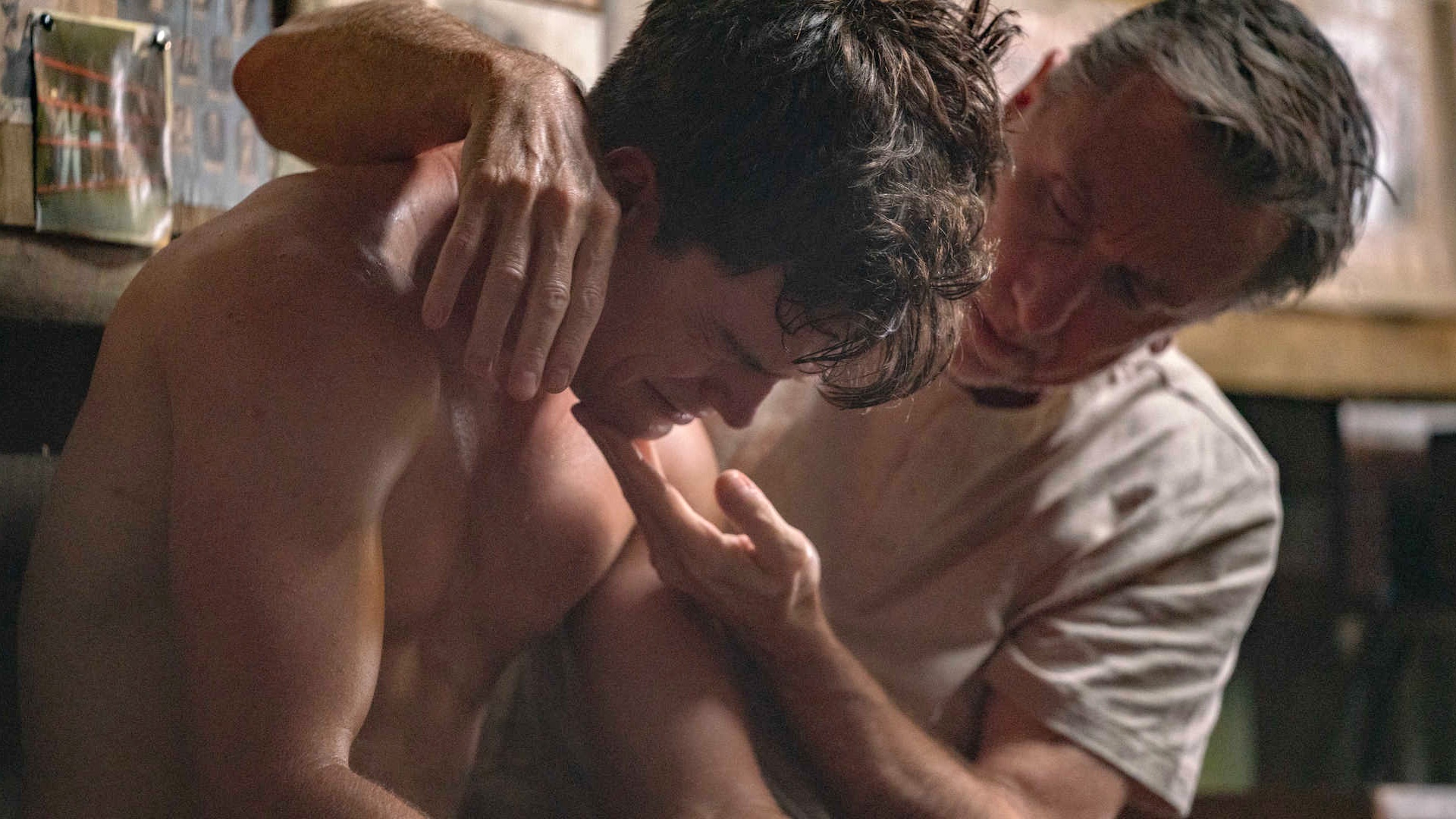Boxing, love, family and bigotry collide in heavyweight Aotearoa drama Punch
A tender love story between two outsiders in a community stuck firmly in its parochial, patriarchal past.

A small New Zealand town is the setting for Punch, which sees a teenage boxer grapple with gender expectations and the demands of his boxing coach father (screen legend Tim Roth). Adam Fresco was impressed by this tender love story between two outsiders in a community stuck firmly in its parochial, patriarchal past.
Welby Ings’ first feature as both writer and director is an Aotearoa movie unafraid to punch above its weight. Shining a light on the toxic masculinity and homophobia of a small Kiwi town, this coming-of-age tale is focused on seventeen-year-old Jim (Jordan Oosterhof), a talented boxer, pushed into pugilism by his alcoholic father Stan (Brit actor, and Tarantino regular, Tim Roth).
Whilst as a boxer Jim shows plenty of raw potential, his real passion lies in filmmaking, and in his attraction to Māori teen, Whetu (Conan Hayes). The young actors are convincing and captivating, and it’s testament to their burgeoning talent that they are never overshadowed by Tim Roth. Instead, rather than eclipsing his young co-stars, Roth’s measured portrayal of Jim’s alcoholic, homophobic father serves to personify the town. He’s a relic of an age in which gender and sexuality are strictly binary, and the solution to psychological issues comes in a bottle.
It’s a rough and raw morality, matched by Ing’s unfussy direction, which serves to focus on the main characters and their inner turmoil. Sure, there are a few boys-to-men and queer coming-of-age movie clichés at play, but these never overwhelm a narrative that remains, at heart, a tender love story between two outsiders in a community stuck firmly in its parochial, patriarchal past.
The bleak location and black sands of Tāmaki Makaurau’s West Coast provide a suitably desolate backdrop, with the tiny Kiwi township and its hidebound residents reinforcing Jim’s sense of being an outsider, trapped in his own home. Despite his fighting prowess in the ring, Jim seems happier making films, flying a drone on the beach. But when he’s stung by a jellyfish, and cared for by Whetu in his dilapidated beach shack retreat, the two outsiders form a bond. As Jim’s relationship with Whetu grows, so does his enmity with his father, pushing his son to become a boxer, and never once considering what Jim might want for himself.
The demand from the father that the son fight is a potent theme, rife with changing concepts of masculinity. But in the fictional, but familiar, small town of Pirau, where bigotry is as much a part of the fabric of life as alcohol and violence, does someone like Jim stand a chance? Is the only answer for someone different to leave home, or face up to the intolerance often inherent in tradition?
These themes are explored throughout, in a film that asks tough questions, casting an unwavering eye over the customs behind what it means to be a man in a world of rapidly evolving definitions of gender expectations. From the powerful opening image of children wearing angel wings and pilot goggles playing on the sand, to the derelict but charmingly decorated beach shack where Jim and Whetu spend time together, to the contrasting images of Jim boxing or piloting a drone camera, the film explores its themes with careful contemplation, allowing space for the characters to breathe, and the audience to reflect.
With its focus on paternal expectations versus youthful independence, customs versus coming out, traditional masculinity and modern identity, violence and vision, Punch resonates largely due to the commitment of its two young lead actors, Matt Henley’s starkly beautiful cinematography, and storytelling shot with an eye for detail that reveals the painful agony and soaring ecstasy of the everyday.

























